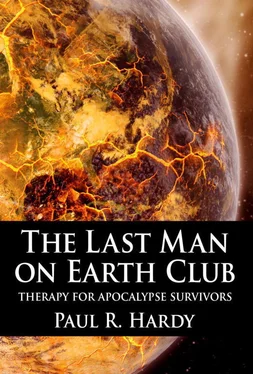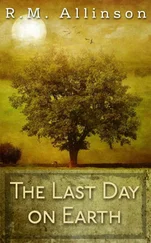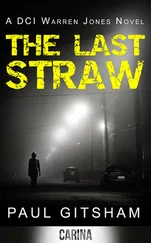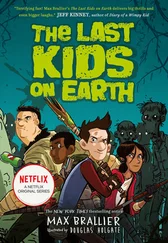He looked into one other set of cases: those where there were survivors, who had then committed their own genocide against their former oppressors. It was very rare for anyone to be able to turn the tables so completely, and he seemed to be frustrated even with these cases. The former victims became just like their former persecutors, displaying exactly the same behaviour of denial and forgetting, acting as though they were the guilty parties. And by any rational standards, that was precisely what they were. But while Pew was as contemptuous of their denial as any other scholar, his reasoning was different. He thought the crime of counter-genocide should be celebrated.
After he had missed three sessions, I called him in for a compulsory meeting. I made sure the security man I sent was the one who had been teaching him self-defence; they had a rapport, and I wanted as little chance of conflict as possible. Pew submitted to the summons with a sullen, petulant attempt at gravitas, ignoring pleasantries and the drink I put in front of him.
“Do you know why I’ve called you in, Pew?” I asked. He didn’t reply. “You’ve been avoiding therapy.” He stayed sullen. “And quite frankly, some of what you’ve been up to is troubling me. We need to talk about this.”
He looked up at me. Half angry, half guilty at being found out. But it subsided and he looked away again.
“Pew? Can we talk about what’s bothering you?”
He kept his silence.
“You should know that since you’re on the euthanasia track, you do have certain obligations towards keeping up with your therapy. If you’re unable to attend therapy sessions, we won’t have any choice other than to take you out of the programme.”
He looked up at me again, as though he were being victimised somehow. I went on: “Unless of course you don’t want to die any more?”
His brow furrowed.
“Pew, if you want to stay on the euthanasia track, you have to commit to therapy. At the moment you’re not doing that. So… are you feeling better?”
He swallowed. “I feel different.”
“In what way?”
“I don’t know.”
“I know you’ve been doing a lot of exercise. Has that helped?”
“Yes.”
“Has your research helped as well?”
“Yes.”
“Does that give you something to live for?”
He looked straight at me, unblinking. Deciding what to tell me. Almost trying to intimidate me with his stare. “Something like that,” he said.
I sighed. “I’m not sure your research has been healthy…”
“No. You wouldn’t.”
“What does that mean, Pew?”
“It’s happening again. And you’re letting it happen.”
“I’m sorry, Pew — what do you mean?”
“Ardëe.”
“That’s a natural disaster.”
“No it fucking isn’t!”
“Pew! Control yourself!”
“Why can’t anyone fucking see! ”
“ Pew! ”
I realised that as much as he was shouting, I was shouting back at the same level. He was as shocked as I was. I took a breath.
“I’m sorry, Pew, but I don’t see your point. Their sun’s unstable. It doesn’t happen often, but it happens.”
“ Bullshit .”
“They are just accidents, sometimes.”
He hunched over his knees, sullen.
“Pew, is there something you know that I don’t?”
“They were doing experiments. On the sun.”
“And where did you hear about this?”
“On the net.”
“Where on the net?”
“It’s all over. It was on the news on Ardëe, and then they stopped talking about it when it went wrong. They had a station on Mercury and they were dropping bombs into the photosphere. Bigger than nukes. It’s antimatter. They dropped a whole fucking reservoir of antimatter in there and it’s burning up a bit at a time and that’s what’s happening.”
So now he was down as far as believing in conspiracy theories without questioning them in the slightest. The antimatter accusation wasn’t the only crazy story doing the rounds, and the others made about as much sense. It didn’t matter. Once someone starts believing in conspiracies, they lose touch with objective reality and treat every little bit of news as evidence for what they’ve already decided. And Pew had decided that humanity in all its forms was not just prone to genocide, but addicted to it.
“Okay, Pew, let me ask you something…” He stayed sullen in his chair. I went on. “You’ve been looking into genocides. Okay. But have you looked into apocalypses as well?”
“Yeah,” he said, grudgingly.
“All of them?”
“Some.”
“Were they all genocides?
“…Yeah. Some of them.”
“But not all?” He looked confused. “You should look closely at all of them. Even the ones that are obviously natural disasters.”
“Why?”
“I think you’ll find, in every case — even when it’s obvious it was a natural disaster — there’s somebody saying it was deliberate. There’s usually at least a dozen theories for every apocalypse. But most of the time it is just an accident, no matter what people think. Or what they want to believe.”
That troubled him. “But what if it’s true anyway?”
“It might be. It might not be. It takes a lot of investigating to find out. I bet if you look closely, most of the people who are making these accusations haven’t done much of that. But don’t take my word for it. Look for yourself and make your own mind up.”
He frowned, the certainty of his anger dwindling.
“I know you’re angry, and you’re right to be angry. Because in your case it really was a genocide, and we really do have evidence for what happened. It was a monstrous crime, and one that will not be forgotten. The Soo are interversal pariahs because of what they did. They’ll be denied the full benefits of IU membership, and they’ll have to live with their climate breaking down because we’re not going to help them colonise another world. No one trusts them. I don’t know if anyone ever will.”
He looked up at me.
“Do you really think it would make anything better to kill them all?”
He stared grimly at the floor.
“Pew, we’ll do everything we can to support you. On the other hand, we need to keep everyone else safe. We will send you to the Psychiatric Centre if we have to.”
He looked miserable, caught between two impulses.
“What would you prefer to do?” I asked.
He swallowed again, and came to a very reluctant decision.
“I’ll do the therapy,” he said.
“Thank you,” I replied.
Pew didn’t make a lot of progress with the exposure therapy, but then I didn’t really expect him to, not at first. Just getting him to sit there while I found ways to calm his mind was hard enough work. Helping him deal with his PTSD was going to take months, maybe years, and I found myself thinking more and more that I should get out now, get to the colony world, get away from the group, the centre, Hub, everything. Mykl said they were having trouble finding someone else to take the group — hardly surprising, under the circumstances. There were few people with my experience who weren’t already out at a therapy centre, prepping for refugees, or halfway up the Lift, getting ready to triage the first flood of survivors.
The days rolled on, and we were promised a date for the move again and again. The news showed the first few people from Ardëe emerging at Agvarterheer Port, mostly coming off the Lift to be rushed straight to medical facilities where their burns could be treated. The first place we’d evacuated had been a hospital in one of the highest arcologies, where the UV had been particularly vicious.
Читать дальше












